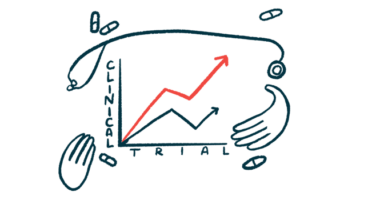When it comes to patient safety, we can’t forget medical transport
Patients deserve peace of mind while traveling to and from the hospital

Living with Duchenne muscular dystrophy means every trip to the hospital is key to my survival. From heart scans to routine medical appointments, leaving home is never simple.
I rely on my mom to ferry me to every checkup in our family’s wheelchair-accessible vehicle. Earlier this year, when our vehicle broke down due to problems unloading the hydraulic ramp, we had to use a private wheelchair-accessible transport service.
For most patients without life-threatening conditions like Duchenne, a vehicle breakdown might pose a slight inconvenience, but they can often use a ride-hailing app or public transportation to get to a checkup on time. But for me, it’s much more serious.
Missing a medical appointment can mean missing the chance to detect health complications or disease progression in time. Each journey requires planning because my safety and well-being depend on it.
That’s why World Patient Safety Day, observed each year on Sept. 17, speaks to me. Patient safety doesn’t take place only inside the hospital. For those of us with Duchenne, it begins the moment we leave our front door and continues until we are safely back home again.
Safe transport is part of safe care
I currently use a Quickie IRIS manual tilt wheelchair with a recline function. Hanging on its push bars is my Trilogy Evo BiPAP ventilator, which I rely on 24 hours a day to breathe. This makes it even more vital that my wheelchair is secured properly and handled with care whenever I go out.
A jolt on the road or equipment not anchored firmly could put me in harm’s way. My ventilator is my lifeline, and keeping it safe on every journey is as critical as the healthcare that I receive at the hospital.
Here in Singapore, the Ministry of Health promotes a culture of “zero avoidable harm” in the healthcare landscape. That vision stretches beyond just doctors, nurses, and hospital visits. It includes transportation providers that offer wheelchair-accessible vehicles and trained medical escorts to accompany patients to and from hospital visits. For someone like me, such services can make the difference between attending a vital heart review or missing it altogether.
Seeing safety as both a patient and advocate
I now see this issue from both sides: as a Duchenne patient and as someone working with Shalom Medcare, a one-stop wheelchair transport and medical escort services provider in Singapore that strives to bring peace of mind to every patient.
I have experienced firsthand how small details matter. A hydraulic lift that functions smoothly, a wheelchair locked firmly to the floor, and a driver or medical escort offering reassurance through each transport ride help put me at ease. They empower me to arrive calmer and more ready to focus on what really matters: my health and well-being.
World Patient Safety Day reminds me that safety is everyone’s responsibility. Families, caregivers, transport staff, nurses, and doctors all form part of the circle of care. When each link holds strong, people with Duchenne like me can arrive ready to work, play, and live.
Note: Muscular Dystrophy News Today is strictly a news and information website about the disease. It does not provide medical advice, diagnosis, or treatment. This content is not intended to be a substitute for professional medical advice, diagnosis, or treatment. Always seek the advice of your physician or another qualified health provider with any questions you may have regarding a medical condition. Never disregard professional medical advice or delay in seeking it because of something you have read on this website. The opinions expressed in this column are not those of Muscular Dystrophy News Today or its parent company, Bionews, and are intended to spark discussion about issues pertaining to muscular dystrophy.








Leave a comment
Fill in the required fields to post. Your email address will not be published.